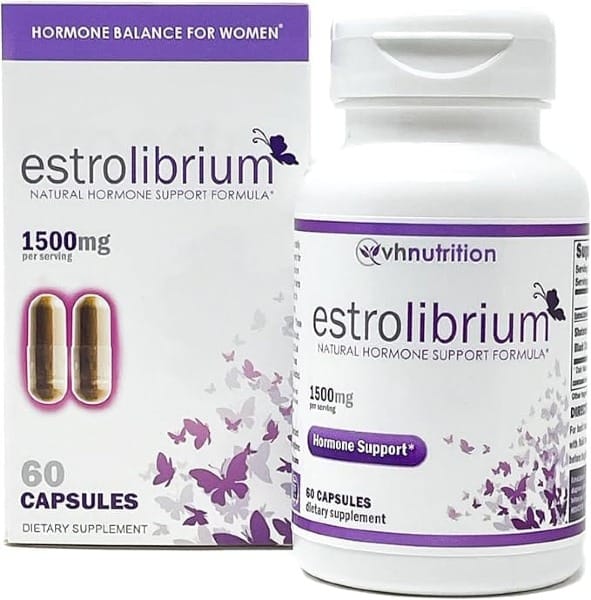As women transition through menopause, they often face new health challenges, including increased inflammation throughout the body. A recent study has shed light on a potential solution: vitamin D. This essential nutrient, often associated with bone health, may play a crucial role in reducing inflammation in postmenopausal women. Let's explore how this simple supplement could make a significant difference in women's health after menopause.
Key Takeaways:
- A new study shows vitamin D supplementation can reduce inflammation in postmenopausal women.
- Inflammation markers decreased by 10-20% in women taking vitamin D.
- The study involved 218 postmenopausal women over a 2-year period.
- Vitamin D's anti-inflammatory effects may help prevent chronic diseases.
- Consult with a healthcare provider before starting any new supplement regimen.
As we age, our bodies undergo numerous changes, and for women, menopause marks a significant transition. While hot flashes and mood swings are well-known symptoms, there's a less visible but equally important concern: increased inflammation. Inflammation is the body's natural response to injury or infection, but when it becomes chronic, it can lead to various health issues. Now, a groundbreaking study offers hope in the form of a familiar nutrient – vitamin D.

vhnutrition ESTROLIBRIUM natural hormone support formula
Hormone Balance for Women | Menopause Support Supplement | Black Cohosh, Shatavari, Chaste Tree Berry (Vitex), Dong Quai | 60 Capsules in Easy to Swallow Pills. Made in the USA
The Study: Vitamin D's Impact on Postmenopausal Inflammation
Researchers at the University of Wisconsin-Madison conducted a comprehensive study to investigate the effects of vitamin D supplementation on inflammation in postmenopausal women. The study, which spanned two years and involved 218 participants, yielded promising results that could change how we approach women's health after menopause[3].
Study Design and Participants
The study focused on postmenopausal women, a group often at higher risk for vitamin D deficiency and increased inflammation. Participants were divided into two groups:
- Those receiving a daily vitamin D supplement
- Those receiving a placebo
Over the course of two years, researchers monitored various markers of inflammation in the participants' blood[3].
Significant Findings
The results were striking. Women who took vitamin D supplements showed a 10-20% decrease in key inflammation markers compared to those who received the placebo. This reduction in inflammation is particularly noteworthy because it could potentially lower the risk of various chronic diseases associated with aging[3].

Understanding Inflammation and Its Impact
Before delving deeper into the study's implications, it's important to understand what inflammation is and why it matters, especially for postmenopausal women.
What is Inflammation?
Inflammation is the body's natural defense mechanism against harm. It's a complex biological response that helps protect us from injury, infection, and other threats. However, when inflammation becomes chronic, it can lead to a host of health problems.
Inflammation and Menopause
During and after menopause, many women experience an increase in inflammation throughout their bodies. This rise in inflammation is thought to be linked to the decrease in estrogen that occurs during menopause. Estrogen plays a role in regulating inflammation, and its decline can lead to an imbalance in the body's inflammatory response.
The Role of Vitamin D
Vitamin D is often called the "sunshine vitamin" because our bodies can produce it when our skin is exposed to sunlight. However, it's also available through certain foods and supplements. While it's best known for its role in bone health, vitamin D has many other functions in the body.
Vitamin D and Inflammation
The study's findings highlight vitamin D's potential as an anti-inflammatory agent. But how does it work? Vitamin D appears to interact with the immune system, helping to regulate inflammatory responses. By doing so, it may help keep inflammation in check, preventing it from becoming chronic and harmful[3].
Beyond Inflammation: Other Benefits of Vitamin D
While this study focused on inflammation, it's worth noting that vitamin D offers a range of other health benefits, particularly for postmenopausal women:
- Bone Health: Vitamin D helps the body absorb calcium, crucial for maintaining strong bones.
- Mood Regulation: Some studies suggest vitamin D may play a role in mood regulation and could help alleviate symptoms of depression.
- Immune Function: Vitamin D supports the immune system, potentially helping to ward off infections and illnesses.
Implications for Women's Health
The findings of this study could have far-reaching implications for women's health, particularly in the years following menopause.
Potential for Disease Prevention
By reducing inflammation, vitamin D supplementation could potentially lower the risk of various chronic diseases that become more common after menopause. These include:
- Heart disease
- Certain types of cancer
- Autoimmune disorders
- Cognitive decline
Improving Quality of Life
Beyond disease prevention, reducing inflammation could lead to improvements in overall well-being. Many women report feeling better and more energetic when their inflammation levels are lower.
Practical Considerations
While the study's results are promising, it's important to approach vitamin D supplementation thoughtfully.
Consulting with Healthcare Providers
Before starting any new supplement regimen, it's crucial to consult with a healthcare provider. They can help determine the appropriate dosage based on individual needs and current vitamin D levels.
Getting Enough Vitamin D
While supplements can be beneficial, it's also important to consider natural sources of vitamin D:
- Sunlight: Safe sun exposure (with proper skin protection) can help the body produce vitamin D.
- Diet: Foods like fatty fish, egg yolks, and fortified dairy products contain vitamin D.
- Supplements: For those who can't get enough through sunlight and diet, supplements can be a good option.
Looking to the Future
This study opens up new avenues for research and potential treatments. Future studies might explore:
- The optimal dosage of vitamin D for reducing inflammation
- Whether the anti-inflammatory effects of vitamin D extend to other populations
- How vitamin D supplementation might be combined with other strategies to promote healthy aging
Conclusion
The discovery that vitamin D can significantly reduce inflammation in postmenopausal women is an exciting development in women's health. It offers a simple, accessible way for women to potentially improve their health and reduce their risk of chronic diseases as they age.
However, it's important to remember that while vitamin D shows promise, it's not a magic bullet. A holistic approach to health, including a balanced diet, regular exercise, and routine check-ups with healthcare providers, remains crucial.
As we continue to learn more about the complex relationship between nutrition, hormones, and overall health, findings like these empower us to make informed decisions about our well-being. For postmenopausal women, vitamin D might just be the ally they need in their journey towards healthier, more vibrant later years.
Citations:
[1] https://www.ncbi.nlm.nih.gov/pmc/articles/PMC10291614/
[2] https://www.mindbodygreen.com/articles/new-study-vitamin-d-helps-lower-inflammation-after-menopause
[3] https://www.ncbi.nlm.nih.gov/pmc/articles/PMC9919965/
[4] https://www.mdpi.com/2072-6643/16/14/2356
[5] https://www.maturitas.org/article/S0378-5122%2822%2900260-2/fulltext













Member discussion